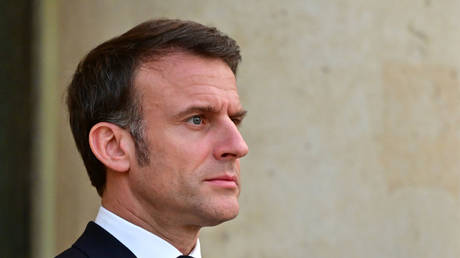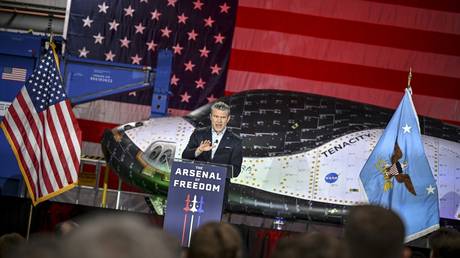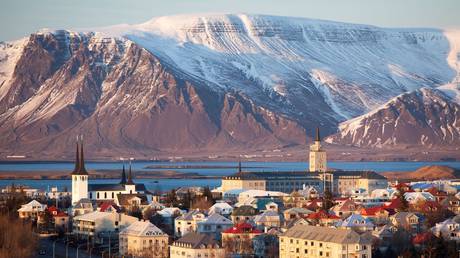
The French president has condemned Tehran’s attack on Israel and called for sanctions to be strengthened
French President Emmanuel Macron has called for international sanctions on Iran to be strengthened following its attack on Israel over the weekend.
Tehran carried out a massive airstrike on Israeli territory on Saturday in response to the bombing of the Iranian embassy in Damascus earlier this month. Israel has neither confirmed nor denied its role in the bombing, but its responsibility was later implied by Defense Minister Yoav Gallant.
In an interview to BFMTV and RMC radio, Macron condemned Iran’s response, calling it “disproportionate.”
“Instead of targeting Israeli interests outside Israel, [Tehran] went after Israel on its soil, and attacked from their own soil, which is a first,” he said, noting that the airstrikes had caused “a profound rupture” in already strained relations between the two Middle Eastern states, paving the way for further “dangerous reactions” on both sides.
Macron said the international community “will do everything to avoid escalation” in the conflict and urged Israel not to retaliate via military means. Instead, he said the focus should be on “isolating“ Iran and called for more sanctions on Tehran, including “boosting pressure on its nuclear activities,” which he believes would help “find a path to peace in the region.”
Iran has justified Saturday’s attack by citing its right of self-defense under Article 51 of the UN Charter. It also pledged not to take further action, unless Israel strikes again, but warned that a military response from would prompt an even bigger escalation. Israel has called Iran the “greatest threat” to regional and world peace, and called for “painful sanctions” on Tehran, including its nuclear industry.
Iran has been the subject of various international sanctions for decades amid fears in the West that its nuclear enrichment program was aimed at producing a nuclear bomb. Sanctions were eased somewhat in 2015 when Tehran agreed to some restrictions on the program under the Iran Nuclear Deal, known officially as the Joint Comprehensive Plan of Action (JCPOA), between Iran, the US, the UK, France, Germany, Russia, China, and the EU.
However, the deal was scuppered in 2018 after then-President Donald Trump unilaterally withdrew from it and reimposed old sanctions on Tehran. Several attempts to revive the deal in recent years have proven unsuccessful.




